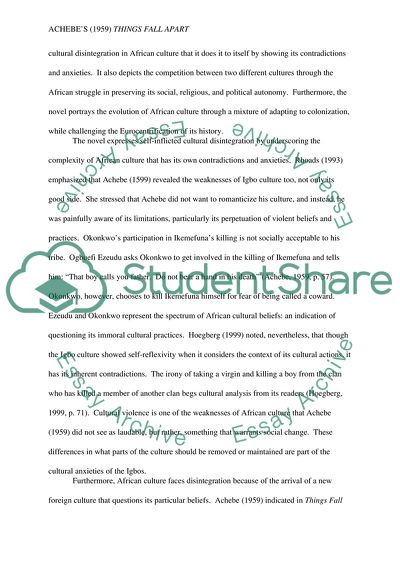Cite this document
(Evolution of African Culture in Achebes Things Fall Apart Book Report/Review, n.d.)
Evolution of African Culture in Achebes Things Fall Apart Book Report/Review. https://studentshare.org/culture/1840347-research-paper-about-chinua-achebes-things-fall-apart
Evolution of African Culture in Achebes Things Fall Apart Book Report/Review. https://studentshare.org/culture/1840347-research-paper-about-chinua-achebes-things-fall-apart
(Evolution of African Culture in Achebes Things Fall Apart Book Report/Review)
Evolution of African Culture in Achebes Things Fall Apart Book Report/Review. https://studentshare.org/culture/1840347-research-paper-about-chinua-achebes-things-fall-apart.
Evolution of African Culture in Achebes Things Fall Apart Book Report/Review. https://studentshare.org/culture/1840347-research-paper-about-chinua-achebes-things-fall-apart.
“Evolution of African Culture in Achebes Things Fall Apart Book Report/Review”. https://studentshare.org/culture/1840347-research-paper-about-chinua-achebes-things-fall-apart.


